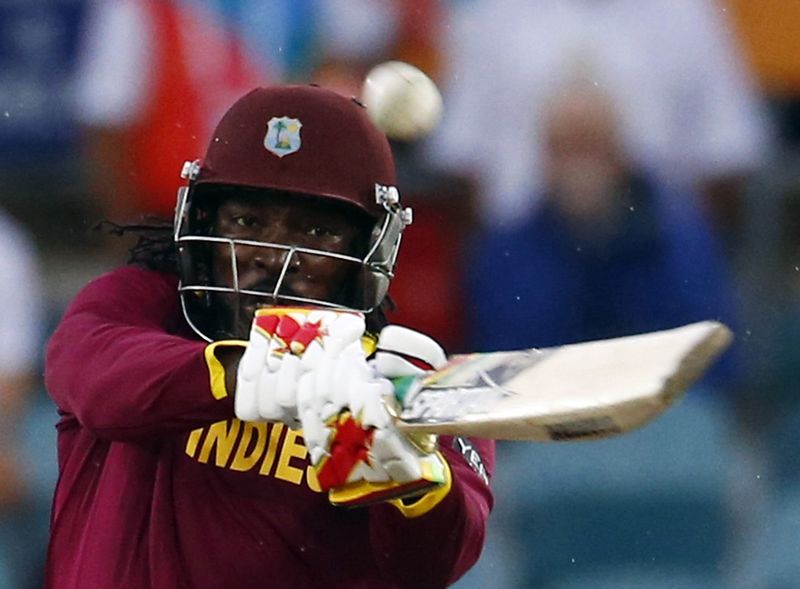CANBERRA (Reuters) - Chris Gayle rediscovered his mojo in spectacular fashion with the highest individual innings in a World Cup match on Tuesday, his 215 helping West Indies to 372 for two in their Pool B clash against Zimbabwe.
The masterblaster opener slugged 16 sixes -- equalling the ODI record -- as well as 10 fours in the 147-ball innings, which formed the large part of an ODI record 372-run partnership with Marlon Samuels (133).
The 35-year-old was dismissed with the last ball of the innings trying for a 17th six but only succeeding in holing out in the deep.
Gayle's determination to end his poor run of recent form meant the first hundred run in his innings was by no means the most fluent of his 22 one-day international centuries.
Once he reached the milestone with the first ball of the batting powerplay, however, he punished the Zimbabwean bowlers as only he can, smashing the ball around the ground almost at will.
He had brought up his 50 and century with singles but it was a four off Tendai Chatara that he reached the historic double century in the 46th over, Gayle becoming the first non-Indian to achieve the feat.
Samuels, meanwhile, was caution personified for most of his 156-ball innings until finally cutting loose as the Zimbabwean bowlers wilted in the face of the flogging they were receiving from Gayle.
The pair put on 152 runs in the last 10 overs to take the match almost certainly out of reach of their African opponents.
Despite the impressive 150-run victory over Pakistan at the weekend that rebooted the West Indies campaign after their embarrassing defeat to Ireland, the failure of the top order to fire had been of a concern in the Caribbean.
It looked like remaining so after a first over in which Dwayne Smith departed for a duck on the second ball and Gayle could easily have followed him back to the dressing room.
Smith was clean bowled by a Tinashe Panyangara delivery that nipped in late and the Zimbabwean paceman was not satisfied when his loud appeal for leg before against Gayle was turned down.

Zimbabwe referred of the decision to the third umpire and technology showed the ball would have just cleared the bails by a matter of centimetres.